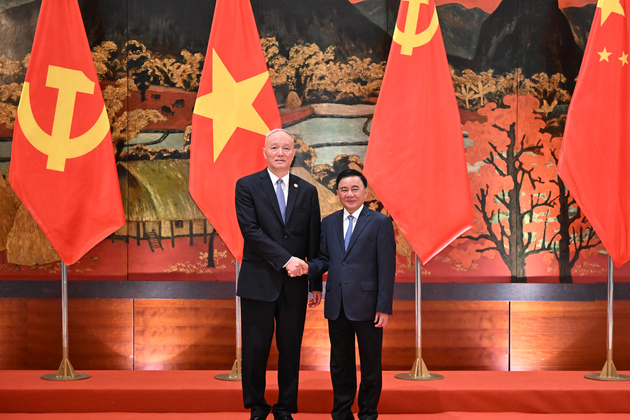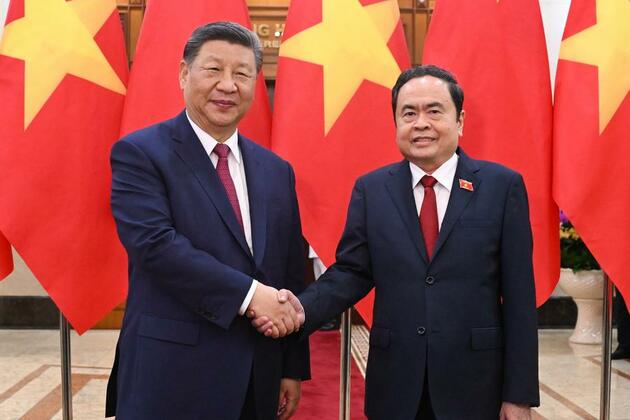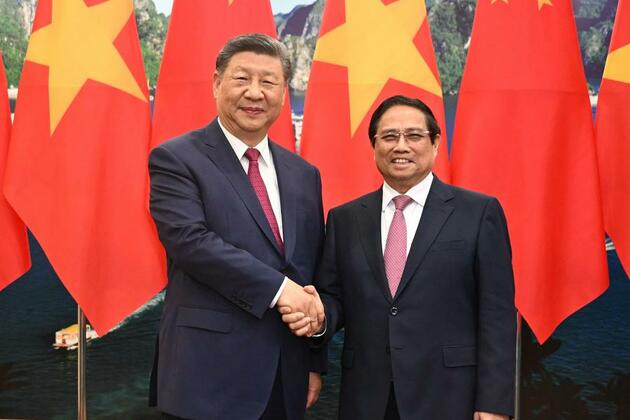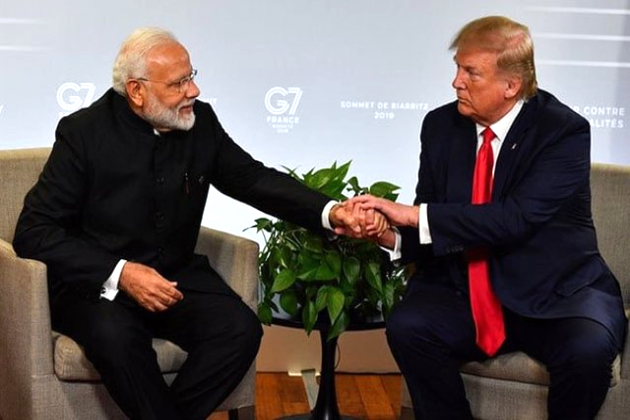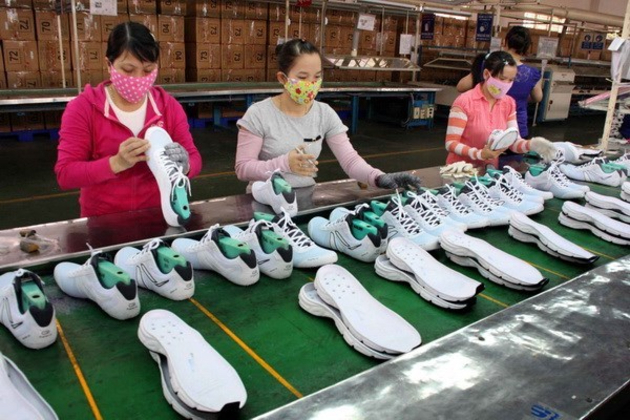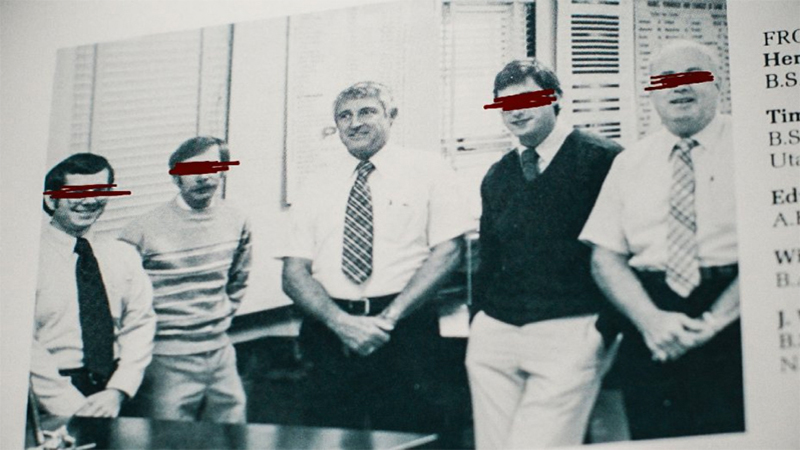US autoworkers launch historic strike: 3 questions answered
The Conversation
15 Sep 2023, 18:09 GMT+10
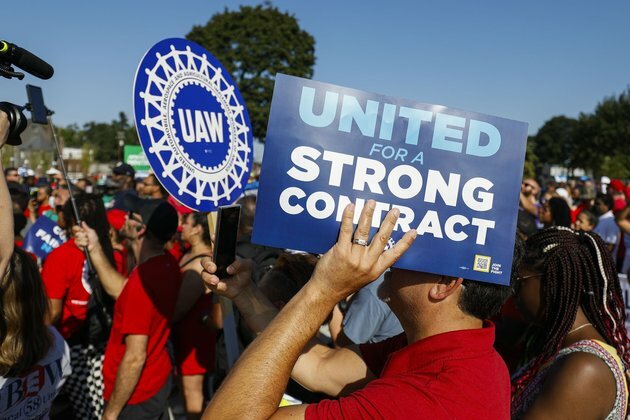
The United Auto Workers union, or UAW, has told workers at three factories to go on strike after failing to agree on new contracts with each of Detroit's major automakers. The contracts expired at 11:59 p.m. on Sept. 14, 2023. By midnight, the union posted a strike declaration on its website.
The strike will force General Motors, Ford and Stellantis - the global company that builds Chrysler, Jeep, Ram and Dodge vehicles in North America - to halt some of their operations. "Tonight for the first time in our history we will strike all three of the Big Three at once," UAW President Shawn Fain announced about two hours before the negotiation deadline passed without a contract. The union is seeking higher pay, better benefits and assurances that large numbers of its members will work in the automakers' growing number of electric-vehicle factories.
The Conversation U.S. asked Joshua Murray, a sociologist who studies the automotive industry and its workers, to discuss the UAW's strategy and explain why this strike is significant.
1. How important is it that this strike is affecting all three Detroit automakers?
Until now, the UAW had always gone on strike against one of the companies at a time. And in recent years, all workers employed by that automaker had walked off the job. That's what happened in the previous UAW strike. In 2019, 48,000 General Motors autoworkers refused to work for 40 days. The UAW used this same tactic in strikes against GM in 2007 and 1970.
While holding a strike against a few key plants breaks with recent UAW practices, it's a strategy deeply rooted in the union's history. UAW President Shawn Fain has invoked the 1936-37 action known as the Great Flint Sit-Down Strike, when workers targeted what they referred to as General Motors' "mother plants."
Workers took over the plants by sitting down at their work stations at the end of the day and refusing to leave. By the time the strike was over, GM had agreed to sign a contract for the first time with the UAW. The union gained hundreds of thousands of new members, and autoworker pay grew sharply in the months that followed.
The Flint strike demonstrated that strategically targeting a few factories can maximize the pressure put on companies, while minimizing both the number of workers affected and length of time affected workers must remain idle.
The UAW's use of a similar approach now will reduce the risk of the union exhausting its US$825 million strike fund, from which it must pay $500 per week to every UAW member who walks off the job.
Fain is calling the new approach a "stand-up strike."
"This strategy will keep the companies guessing," he said in livestreamed remarks shortly before the strike officially began. "It will give our national negotiators maximum leverage and flexibility in bargaining."
Although the strike is starting at just a few plants, the union may halt all production later on. "If we need to go all out, we will," Fain said. "Everything is on the table."
About 13,000 UAW workers at three sites - a GM assembly plant in Wentzville, Missouri; a Stellantis assembly plant in Toledo, Ohio, and a Ford plant in Wayne, Michigan - are the first to participate in this strike.
2. How would you define success or failure for the UAW's new strategy?
To understand why the union chose this strategy over a full-out work stoppage, it's important to understand the nature of strikes and what makes them successful.
In the book "Wrecked: How the American Automobile Industry Destroyed Its Capacity to Compete," sociologist Michael Schwartz and I analyzed the history of labor relations and production systems in the U.S. and Japanese auto industries to better understand the decline of Detroit's Big Three automakers. In the process, we learned what determined the level of success of previous auto strikes.
A strike is essentially a game of chicken between workers and management. Workers threaten the company's viability by withholding their labor, going without paychecks to halt production. Companies protect themselves from strikes by stockpiling inventory so they can keep sales going. Workers protect themselves via their strike funds.
Generally, strikes succeed when they hurt a company's bottom line so much that executives decide it makes financial sense to give in to the workers' demands.
Strikes fail when workers can't create enough disruption to pressure the company to give in before strike funds run out. They also fail when workers give in before securing a contract in line with their demands, potentially ending up worse off than if they had never walked off the job.
Fain, who was elected UAW president in March 2023, and the rest of his new leadership team seem to recognize the importance of surprising management and picking strategic targets in a way that many of the union's previous leaders did not. I believe that the UAW is likely to ultimately have more success with this strike than it has had in decades.
3. Is this strike likely to be historically significant?
No doubt about it. No Ford workers had gone on strike in the U.S. since 1978. Chrysler workers, who are now employed by Stellantis, last went on strike in 2007. And U.S. autoworkers are targeting GM, Ford and Stellantis simultaneously for the first time in the union's 88-year history.
But it's not yet clear how historically significant it will be.
If the UAW's "stand-up" strike strategy succeeds, I think it's likely that other labor organizers will embrace it too - potentially improving the leverage other workers have in their contract negotiations and strikes.
Author: Joshua Murray - Assistant Professor of Sociology, Vanderbilt University 
 Share
Share
 Tweet
Tweet
 Share
Share
 Flip
Flip
 Email
Email
Watch latest videos
Subscribe and Follow
Get a daily dose of Japan Herald news through our daily email, its complimentary and keeps you fully up to date with world and business news as well.
News RELEASES
Publish news of your business, community or sports group, personnel appointments, major event and more by submitting a news release to Japan Herald.
More InformationAsia Pacific
SectionAI boom drives TSMC revenue to record highs
TAIPEI, TAIWAN: A strong push from artificial intelligence demand lifted TSMC's quarterly revenue to new highs, with the chipmaker...
Russia not chasing anyone for sanctions relief Lavrov
The US restrictions have undermined bilateral trade, the foreign minister has said Trade between Russia and the US has seen a major...
Fyodor Lukyanov: Heres what Trump really wants from his trade war
The US president believes the EU will obey and he may be right US President Donald Trump wasn't joking. As promised, he has launched...
VIETNAM-HANOI-CHINA-CAI QI-TRAN CAM TU-MEETING
(250414) -- HANOI, April 14, 2025 (Xinhua) -- Cai Qi, member of the Standing Committee of the Political Bureau of the Communist Party...
Xi urges China, Vietnam to jointly march toward modernization
HANOI, April 14 (Xinhua) -- Chinese President Xi Jinping on Monday called on China and Vietnam to march toward modernization hand in...
Xi calls on China, Vietnam to oppose hegemonism, unilateralism, protectionism
HANOI, April 14 (Xinhua) -- Chinese President Xi Jinping on Monday urged China and Vietnam to jointly oppose hegemonism, unilateralism...
Business
SectionWall Street marches higher on Trump tariffs reprieve
NEW YORK, New York - Automakers and tech companies helped to lift U.S, stock indices Monday as stock markets around the world saw a...
India seeks to fast-track US trade deal after tariff pause
NEW DELHI, India: India is pushing to fast-track a trade agreement with the United States following a temporary pause on new tariffs,...
Vietnam to crack down on rerouted Chinese goods to avoid US tariffs
HANOI, Vietnam: Vietnam is preparing a series of trade enforcement measures as it scrambles to shield itself from sweeping U.S. tariffs,...
AI boom drives TSMC revenue to record highs
TAIPEI, TAIWAN: A strong push from artificial intelligence demand lifted TSMC's quarterly revenue to new highs, with the chipmaker...
Aurora's driverless trucks to tackle tough weather post Texas launch
PITTSBURGH, Pennsylvania: Aurora Innovation says its driverless trucks will eventually be equipped to handle tough weather conditions,...
US Treasury to ease regulatory burden on small banks
WASHINGTON, D.C.: The U.S. Treasury will step more firmly into bank regulation to ensure better balance and less burdensome oversight,...




